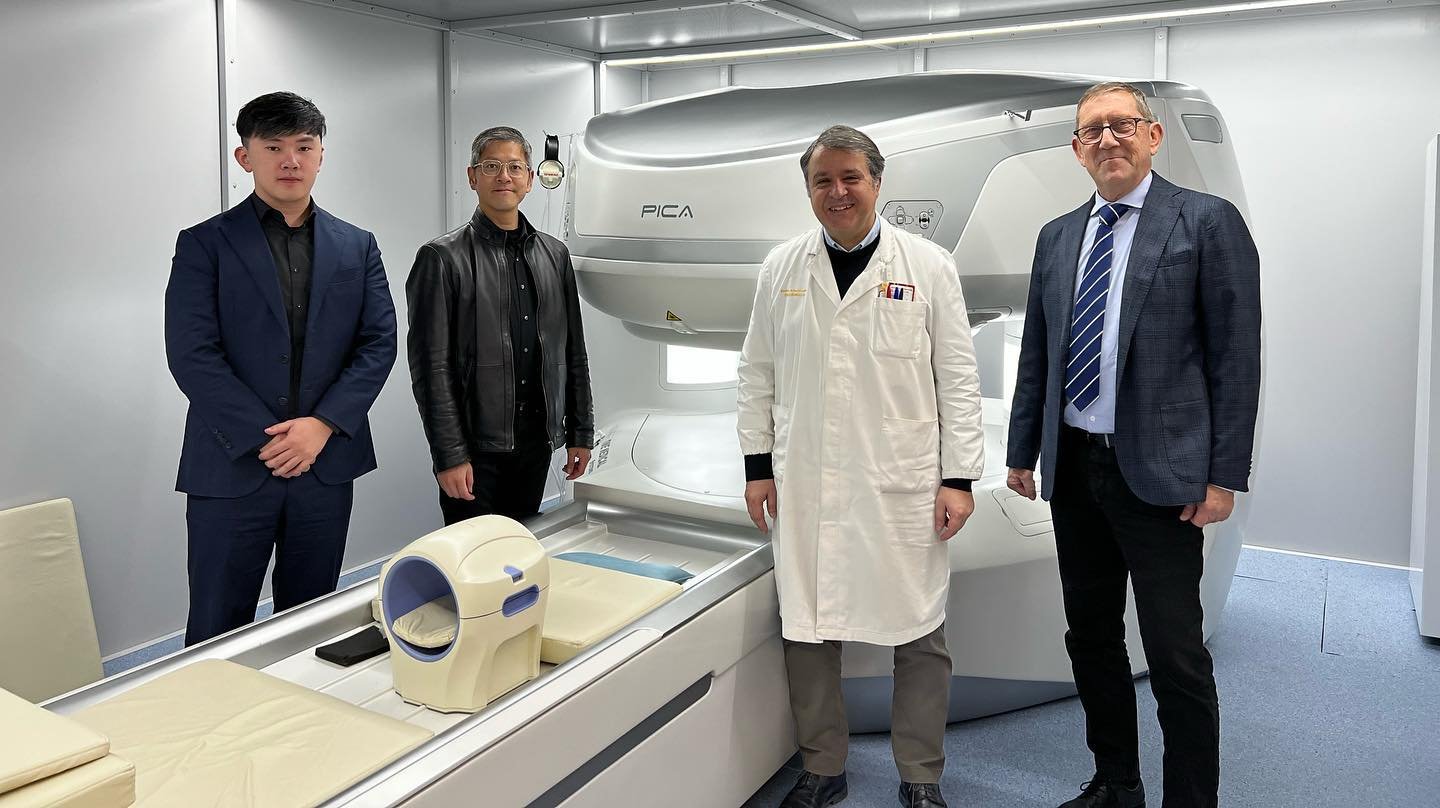Time Medical and Hawkcell Signed Strategic Partnership Agreement For Pet MRI with AI Technology
/July 12, 2025
Time Medical is excited to announce forming a strategic partnership with Hawkcell, a French based pioneer in animal MRI AI solution with patented technology to offer the first-ever animal-dedicated imaging solution for veterinary diagnostic imaging.
On July 9 and 10, Hawkcell Chairman and CEO Alexis GIRIN, Founder and CSO Dr. Hugo DOREZ, and CTO Florian MÜLLER-FOUARGE visited Time Medical Hong Kong Headquarter office and production base. The CEOs of both companies signed the Strategic Partnership Agreement.
The partnership aims to implement HawkAI, the advanced AI solution developed by Hawkcell, in veterinary hospitals installed with Time Medical Veterinary MRI systems and implement the HawkAI in all future veterinary MRI systems from Time Medical. HawkAI can shorten the scan time by 50% and improve the image quality significantly.
Left to right: Hugo DOREZ, Simon YEUNG, Alexis GIRIN, QY MA, Florian MÜLLER-FOUARGE, Alec LEUNG
Left to right: QY MA and Alexis GIRIN
In 2024, there are 120 million pets in China and 185 million pets in US. Global Veterinary Imaging market will be US$2 billion by 2027. Global Veterinary MRI market will reach US$600 million by 2027.
China has 30,000 Veterinary Clinics with 30% installed DR, but only 1% with MRI, representing a huge market growth potential. TM ranks No.1 in China Veterinary MRI market with 45% market share. In addition, TM is a leader in big data of veterinary imaging and has over 30,000 small animal MRI scan data.
Hawkcell and Time Medical team at Happy Valley Veterinary Clinic and Hospital
Hawkcell and Time Medical team with NPV founder Mark MAK and PR Manager Louis Ng at NPV Veterinary Imaging Centre
During this trip, Hawkcell team visited two veterinary hospitals in Hong Kong installed with TM MRI. HawkAI has been installed at Happy Valley Veterinary Clinic & Hospital as well as the NPV Veterinary Imaging Centre and the customers are extremely satisfied with the results after using HawkAI.















































































